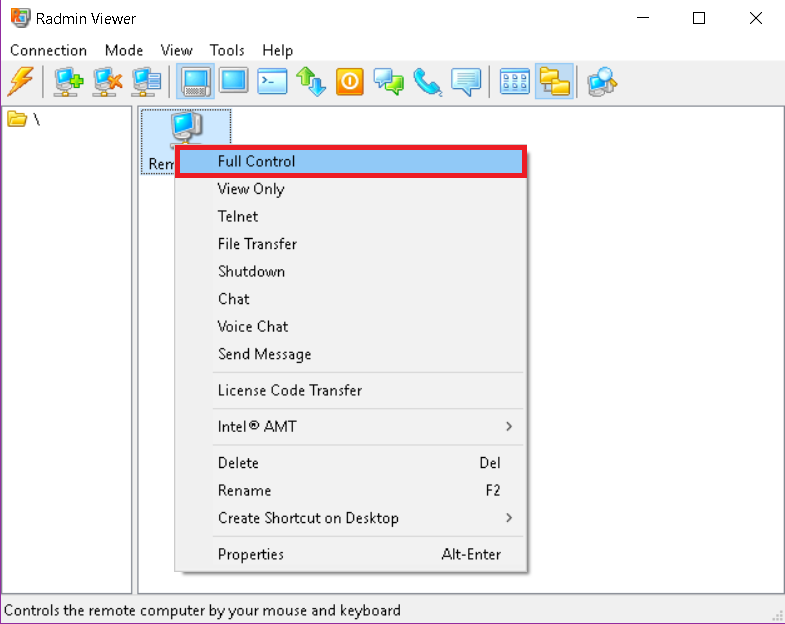
Radmin No Tray Icon
Avtosignalizaciya pantera pn 332 video. • SECTIONS • Search → • • • Customer Service • • • • • Advertise • • • Stay Connected • • • • • • • My Subscription • • • • • News • • • • • • • • • • • • Sports • • • • • • • • • Columnists • • Politics • • • • • Fresno State Bulldogs • • • • Entertainment • • • • • • • • • • • • Blogs & Columnists • • • • Living • • • • • • Blogs & Columnists • • • • • • Business • • • • • • Blogs • • Opinion • • • • • • • • Columnists • • • • • Obituaries • • • • • • Shopping • • • Classifieds • • • • • • • • • • • • Place An Ad • • • • • Jobs • • • • • Homes • • •. They come with many names: special prosecutor, independent counsel, special counsel.
Russkaya gramota 1 klass isaeva aksenova luzakov otveti. So there is just no one-to-one mapping. However, I am not sure how these map to the device name format I see in the event log entry. If I replace the enclosure.
Sep 24, 2018 - Take Us With You. Real-time updates and all local stories you want right in the palm of your hand. Icon for mobile apps.
They have been around for more than a century, and are always controversial. They are lawyers appointed to investigate, and potentially prosecute, alleged federal crimes when the government prosecutor has a conflict of interest. Robert Mueller, appointed to investigate alleged Russian interference in the 2016 United States elections, is only their latest incarnation. The most famous special prosecutor, Archibald Cox, was noteworthy for being fired. Cox was appointed in 1973 to investigate the burglary of Democratic National Committee headquarters in the Watergate building in Washington, D.C. By thugs hired by President Richard Nixon’s aides.
Cox’s target was the president, and when he got too close to the target, Nixon ordered the attorney general to fire him. The attorney general resigned in protest, and Nixon appointed another, who obeyed the order and fired Cox.
The resulting political firestorm led to Nixon’s resignation before he could be impeached. Prompted by Nixon’s firing of the Watergate prosecutor, Congress in 1978 enacted the Ethics in Government Act which barred the firing of a duly appointed “independent counsel.” The first president targeted under the act was Bill Clinton, who, with his wife Hillary, was investigated for alleged fraudulent business dealings of their Whitewater Development Corp. Independent Counsel Kenneth Starr, in a classic example of “mission creep,” expanded his investigation into Clinton’s sexual escapades with White House intern Monica Lewinsky. In 1998, after nearly five years of investigation and an expense of $70 million, the investigation ended with no charges filed. The House of Representatives, however, impeached Clinton for perjury and obstruction of justice.
The Senate then tried and acquitted him. When the Ethics in Government Act expired in the same year, Congress declined to renew it, reasoning that the attorney general should have the power to fire a runaway special prosecutor. But today, it is commonly assumed that any president who orders the special prosecutor investigating him fired will be impeached, just as President Nixon would have been. Meaning that the special prosecutor who targets a president is, as a practical matter, untouchable, no matter how much he (there has not yet been a she) expands the original limits of the investigation.
In the days when county fairs featured carousels, riders vied to “catch the brass ring,” that illusive ring among a host of iron imposters, and win a gift. The brass ring came to symbolize the ultimate prize. As a former prosecutor for 25 years, all but two as an elected district attorney, I know that for career prosecutors the brass ring, the ultimate prize, is to win the big case or to get the big promotion. But there is a major difference between a career prosecutor and a special counsel.
A career prosecutor is in the game for the long run, handling hundreds, sometimes thousands, of cases. The special counsel is hired for a single case, predicated upon the assumption that there really is a case, with one or more individuals usually targeted. If a special counsel can file charges and obtain convictions, he has justified his appointment and the expenditure of public funds. The special counsel has greater incentive to convict than the career prosecutor, who both wins and loses cases over time.
Simply put, a special counsel is a head hunter, and his brass ring is a conviction. Failure to find evidence against a targeted official can lead to a special counsel’s mission creep, as in the Whitewater investigation. With an expanded mission, the net is widened, and lesser targets can be caught and “turned” — offered leniency in exchange for damaging testimony against the primary target. This tactic is used infrequently by career prosecutors, due to the inherent danger of inviting perjured testimony from a lesser offender attempting to “buy his way out” of a lengthy prison term.